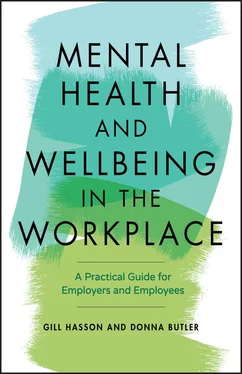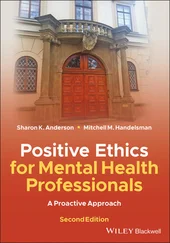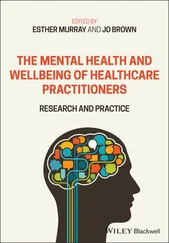Spiritual wellbeing means the ability to experience and integrate meaning and purpose in life through a person's connectedness with self, others, art, music, literature, nature, or a power greater than oneself.
Spiritual wellbeing is about our inner life and its relationship with the wider world . . . Spiritual wellbeing does not just reflect religious belief although for people of a religious faith it is obviously a central feature.
Dr Ritika Srivastava
Physical and Mental Health and Wellbeing
Distinctions are often made between mind and body but when it comes to mental health and wellbeing and physical health and wellbeing, we can't think of them as separate entities. Poor physical health can lead to a person developing mental health problems. And poor mental health can have a negative impact on our physical health and wellbeing.
A physical health problem can impact on our cognitive and emotional abilities; adversely affecting our daily lives, our work, and our relationships. Conversely, if our mental health is suffering as a result of, for example, stress, depression, or anxiety, we are less likely to eat and sleep well and may be less physically active which, in turn, can impact our immune system and so our ability to resist infections and illness can be depleted.
Just as when we neglect and ignore our physical health we can become physically unwell, it's also the case that if we ignore or suppress difficult feelings we can become physically unwell.
When we are exposed to stressful experiences or trauma, we can, without realizing it, banish the experience to the unconscious; it's too much to deal with and it's pushed down to the basement of our minds. Eventually – sometimes years later – the stressful/traumatic experience can present as a mental health problem, for example an anxiety disorder. But a stressful or traumatic experience can also manifest itself as a physical disorder.
One evening, Catrice was reversing her car into into the garage, when she heard a scream. She had reversed the car over her partner, Julie. Unknown to Catrice, Julie was sitting on the floor at the back of the garage, fixing her bike. Horrified and shocked, Catrice called an ambulance and Julie was taken to hospital. Although she had sustained serious injuries, they were not life threatening and in time, Julie recovered. However, a week after Julie's admission to hospital, Catrice developed a weakness in her lower limbs. Eventually she found that she was unable to stand; each time she tried, her legs gave way from underneath her.
Following weeks of tests, x-rays, physiotherapy assessments, and orthopaedic referral, Catrice's GP, believing that she was experiencing a ‘somatic response’ – a physical response to an emotional trauma – referred her to a psychotherapist.
Catrice had blocked the feelings – the trauma, stress, and guilt – she experienced as a result of Julie's suffering but those blocked feelings had manifested themselves as physical symptoms. With support from a psychotherapist, Catrice recovered; she was able to forgive herself for the pain and suffering Julie had been through as a result of her actions.
People with mental health problems are more likely to develop physical health problems and vice versa. Furthermore, people with mental health problems can present to their GP or employer complaining of physical symptoms that have no physical cause. This can sometimes lead to missed or delayed detection of the underlying mental health problem. The interaction between physical and mental health is complex and it is often difficult to determine the direction of causal relationships.
Professor Dame Carol Black
In the same way that the repression of stressful experiences can become a physical problem, physical health can impact on our mental health.
Psoriasis – an auto-immune condition affecting a person's skin – is an example of a condition which can impact on mental as well as physical wellbeing. A 2010 study published in the journal Archives of Dermatology found that those living with psoriasis are a third more likely than people without the disease to be depressed or anxious. The physical and psychological impacts can be cyclically linked: the condition can cause emotional distress which can trigger a psoriasis flare and, as a result, cause further distress.
A myriad of factors influence health and well-being, though many are familiar only to those who experience them.
Professor Dame Carol Black
Although there are key aspects to wellbeing – physical, mental and emotional, social and spiritual – wellbeing is subjective; each and every one of us has our own individual thoughts and beliefs about what makes for wellbeing. Our thoughts, ideas, beliefs, and experiences are framed in a narrative – we each have our own story – our own explanation or account of our wellbeing and what may or may not influence it.
For example, one person's account of their experience of depression and anxiety – how they feel, how they manage, and the extent of the impact on their wellbeing – will be different from someone else's experience and account. In another example, a person who is physically unwell or has a physical disability may feel that they have good levels of wellbeing despite illness or disability. Conversely, someone who is perceived as being well and ‘able bodied’ may believe and feel that they are not experiencing wellbeing to any great extent.
And, when it comes to traumatic experiences, professor of psychiatry at the University of North Carolina, Stephen Porges, suggests that the focus cannot be on the event, but on the individual reaction or response. ‘Much of our society defines trauma by the event when the real critical issue is the individual's reaction. By not accepting that, we end up saying: “If I can survive this and do well, why can't you?” So we start blaming the survivors again.’ Porges says that whatever the size or the intensity of the traumatic event ‘when a person has a reaction or response to trauma, the body interprets the traumatic event as a life threat’.
Who Experiences Mental Ill-health and What Are the Causes?
‘One in four’ is widely cited as the number of people who suffer from a mental health problem. The Health Survey for England found in 2014 that one in four people reported having been diagnosed with at least one mental illness at some point in their lives. A further 18% said they'd experienced an illness but hadn't been diagnosed.
As with so much of what it means to be human, our levels of mental health and wellbeing are a result of both genetic (nature) and environmental factors (nurture).
Although no specific genes for depression have been identified, research has shown that if you have a close family member with depression, you are more likely to experience depression yourself. While this might be caused by our biology, (nature) this link could also be because we usually learn behaviour and ways of coping from the people around us as we grow up. (Nurture)
Mind
Many factors can contribute to the onset of a mental illness. These include prenatal stress, adverse childhood experiences (ACE), including childhood neglect, abuse, and trauma; stress; bereavement; relationship breakdown; physical and sexual abuse; experiencing stigma or discrimination; unemployment; social isolation and loneliness; poverty, debt, homelessness or poor housing; physical illness or disability.
Mental ill-health can affect anyone, regardless of gender, age, race, ethnicity, religion, geography, sexual orientation, or other aspects of cultural background or identity. But some people are more vulnerable than others.
Читать дальше












